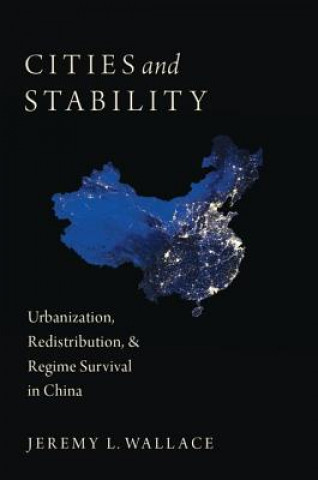
Livrare
Consilier de cumpărături





Nu se pretează? Nu contează! La noi puteți returna bunurile în 30 de zile
 Voucher cadou
orice valoare
Voucher cadou
orice valoare
Cu un voucher cadou nu veți da greș. În schimbul voucherului, destinatarul își poate alege orice din oferta noastră.
Cities and Stability
 engleză
engleză
 522 b
522 b
30 de zile pentru retur bunuri
Ar putea de asemenea, să te intereseze


Cities bring together masses of people, allow them to communicate and hide, and to transform private grievances into political causes, often erupting in urban protests that can destroy regimes. The Chinese Communist Party (CCP) has shaped urbanization via migration restrictions and redistributive policy since 1949 in ways that help account for the regime's endurance, China's surprising comparative lack of slums, and its curious moves away from urban bias over the past decade. Cities and Stability details the threats that cities pose for authoritarian regimes, regime responses to those threats, and how those responses can backfire by exacerbating the growth of slums and cities. Cross-national analyses of nondemocratic regime survival link larger cities to shorter regimes. To compensate for the threat urban threat, many regimes, including the CCP, favor cities in their policy-making. Cities and Stability shows this urban bias to be a Faustian Bargain, stabilizing large cities today but encouraging their growth and concentration over time. While attempting to industrialize, the Chinese regime created a household registration (hukou) system to restrict internal movement, separating urban and rural areas. China's hukou system served as a loophole, allowing urbanites to be favored but keeping farmers in the countryside. As these barriers eroded with economic reforms, the regime began to replace repression-based restrictions with economic incentives to avoid slums by improving economic opportunities in the interior and the countryside. Yet during the global Great Recession of 2008-09, the political value of the hukou system emerged as migrant workers, by the tens of millions, left coastal cities and dispersed across China's interior villages, counties, and cities. The government's stimulus policies, a combination of urban loans for immediate relief and long-term infrastructure aimed at the interior, reduced discontent to manageable levels and locales.
Informații despre carte
 engleză
engleză




 Cum să cumpăr
Cum să cumpăr






















